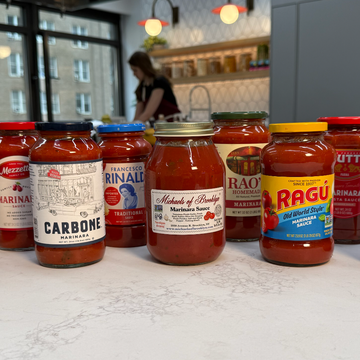- While traditional protein sources, such as meat and supplements, are popular, experts highlight a range of unlikely foods that also pack a protein punch.
- These ingredients not only help diversify your diet but also provide essential nutrients, including probiotics and fiber.
- From hemp seeds in smoothies to kefir in dips, incorporating these unexpected, protein-rich foods into your diet makes healthy eating more exciting.
Whether you're an athlete or just someone who watches what they eat, you're probably focused on getting enough protein in your diet. This macronutrient plays several essential roles in the body, including regulating metabolism, immune response, and hormone function. It also serves as one of the best dietary sources of energy and keeps you feeling fuller for longer.
There are some obvious ingredients that people rely on for protein intake. Meat, seafood, and protein supplements are some of the usual suspects. But you may not know that you can add protein to your diet from some unexpected sources. Experts recommend eating a variety of protein sources to consume a broader range of nutrients. It's also a much more interesting way to eat; instead of getting all of your protein from eggs or cottage cheese, you can combine multiple protein-rich foods for a more colorful, flavorful, and exciting diet.
To broaden your horizons, we consulted experts to reveal some underrated sources of protein that can contribute to a balanced and nutritious diet. So next time you're at the grocery store, you may look at these unexpected high-protein ingredients a little differently.
Spinach
Spinach is a great source of iron, vitamin K, and magnesium. When it cooks, it shrinks into seemingly nothing—but cooked spinach packs a lot of protein in just a few bites. One cup of cooked spinach contains a whopping 6 grams of protein (FYI, that's as much protein as one egg).
Kefir
Think of kefir as the OG Go-Gurt. This thin, drinkable yogurt has been a protein source for over three thousand years. One cup of kefir contains nearly 10 grams of protein. "Kefir is super versatile and a great substitute for buttermilk and oil in cooking, and can be added to smoothies, dressings, dips, parfaits, or used as a base for pasta sauce," says Caroline Margolis, Registered Dietitian at Lifeway Foods, which sells kefir. And, compared to other dairy products like Greek yogurt or buttermilk, there's a much wider range of probiotics to improve your gut health.
Peas
You may think of peas as just a standard vegetable, but unlike many offerings in the produce aisle, peas are part of the legume family. Just like beans and other legumes, peas pack a significant amount of protein per serving—approximately 8 grams per cup. You probably already have a bag of them in your freezer, which makes throwing them into recipes a no-brainer.
Hemp Seeds
Hemp seeds are often overlooked in the supermarket in favor of trendier products like chia or flax. But according to Elizabeth Pecoraro, M.S., R.D.N., L.D., you shouldn't sleep on them. They contain all nine essential amino acids, which means they offer 10 grams of complete protein in just three tablespoons. "I sprinkle them on oatmeal, blend them into smoothies, or mix them into allergy-friendly pesto," Pecoraro says. "They're an easy way to add protein, especially for busy parents and women trying to increase their protein intake."
Guava
You're not always reaching for fruit to meet your protein goals, but there's one unexpected option that can add some more nutrition to your meals. One cup of fresh guava contains over 4 grams of protein (for comparison, most other fruits offer only 1 or 2 grams). It may not be a stand-in for other sources of protein, but it's an easy (and delicious) way to bulk up your smoothies and fruit salads.
Lentils
Many people think of tofu and beans as vegetarian protein sources. As delicious as they are, you shouldn't skip over lentils—one of the easiest ways to add an extra boost of nutrients to your diet. "I recommend them because they are affordable, packed with fiber, and plant-based protein. They're a shelf-stable staple to have in your pantry and add to meals," says Ambrazia Sublett, M.S., R.D.N., Culinary Medicine Dietitian at Vetri Community Partnership. "When compared to their meat protein sources, they are the winner when it comes to heart health."
Cheese
If you've spent any time on the internet recently, you probably already know about the protein benefits of cottage cheese. But if cottage cheese isn't your thing (TBH, I don't blame you), you don't need to worry—because plenty of other cheeses contain high levels of protein too. One ounce of Parmesan, for instance, contains 8 grams, while one cup of mozzarella offers over 35 grams. Pizza for dinner is much more nutritious than we thought.




















